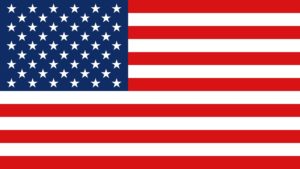Statement Regarding the Executive Order
we write to voice our opposition to the US Executive Order, “Protecting the Nation From Foreign Terrorist Entry Into the United States,” issued on January 27, 2017.

Statement Regarding the Executive Order

We, the undersigned, represent learned societies whose members include archaeologists, anthropologists, historians, linguists, and cultural heritage specialists, as well as public members whose professional expertise lies in other domains. On behalf of these societies and our members, we write to voice our opposition to the US Executive Order, “Protecting the Nation From Foreign Terrorist Entry Into the United States,” issued on January 27, 2017. This Executive Order, among other things, suspends the entry of immigrant and nonimmigrant citizens of Iran, Iraq, Libya, Somalia, Sudan, Syria, and Yemen into the United States for at least ninety days. The Executive Order also indicates that additional countries may be recommended for similar treatment.
Many of our organizations count among their members individuals who come from countries affected by, or potentially affected by, this Executive Order. Our members across the globe, moreover, have innumerable friends and colleagues in these countries. Our societies want only the warmest and most heartfelt hospitality to be extended to these friends and colleagues when they come to the United States, just as our organizations’ US members, and members elsewhere, have been extended warm and heartfelt hospitality in their time in the countries in question.
We are thus profoundly concerned by policies that might undermine our friendships and collegial relationships. Indeed, and to the contrary, we emphatically and unreservedly affirm that among our core values is the conviction that personal and cultural engagement and exchanges among all of our organizations’ members and affiliates — including members, colleagues, and friends in the United States and members, colleagues, and friends in the countries affected by the Executive Order — are of inestimable benefit in promoting peaceful relations in our often troubled world.
Moreover, we affirm our unwavering conviction that the worldwide community of archaeologists, anthropologists, historians, linguists, and cultural heritage specialists who work together in countries such as Iran, Iraq, Libya, Somalia, Sudan, Syria, and Yemen are among those global ambassadors best able to promote understanding, mutual respect, and relationships of true well-being among our many nations.
In short, we assert that security and safety for all concerned can flow from the alliances and goodwill that our members and affiliates have cultivated in our many years of working together as friends and colleagues throughout the world. We seek policies that, instead of setting the United States at odds with whole citizenries in the Middle East and Africa, will foster among these nations the partnerships and collaborations that we hold so dear, and we thus add our voices to the many others urging the US government to articulate policies consistent with these values.
Susan Ackerman
President, American Schools of Oriental Research (ASOR)
Diane Gifford-Gonzalez
President, Society for American Archaeology
Sharon Herbert
President, W. F. Albright Institute for Archaeological Research
Jodi Magness
President, Archaeological Institute of America (AIA)
Jenifer Neils
Chair of the Managing Committee, American School of Classical Studies at Athens (ASCSA)
Alisse Waterston
President, American Anthropological Association
In Jerusalem:
Street Address: 26 Salah ed-Din Street, 9711049
Jerusalem, P.O. Box 19096
Phone: +972(0)2-628-8956
Email: albrightinstitute@aiar.org
US Business Office:
Angie Quinn, US Finance Manager, 6031 26th
Street, North; Arlington, VA 22207
Phone: (703) 606-5682
Email: angiequinn@aiar.org
Entrance and visits by appointment only
To visit the library, either click here to submit a visit request or contact library@aiar.org.
For other visits, contact: albrightinstitute@aiar.org
W.F. Albright Institute of Archaeological Research © 2024 W.F. Albright Institute of Archaeological Research. All rights reserved.
We welcome visitors by appointment, Sunday through Thursday.
To visit the library, please contact the head librarian 24 business hours in advance of your visit library@aiar.org
For other visits, please book an appointment 24 business hours in advance by contacting albrightinstitute@aiar.org
We welcome you to join our public lectures. Subscribe to our newsletter & follow us on Facebook and Instagram to stay up to date with our news, events, and programming.
If you’re interested in hosting an event, dinner, reception, group tour or meeting at the Albright, please contact us at albrightinstitute@aiar.org for options.
Street Address: 26 Salah ed-Din Street, 9711049 Jerusalem
Postal Address: P.O. Box 19096, 9119002 Jerusalem
Telephone: +972(0)2-628-8956
Fax: +972(0)2-626-4424
Email: albrightinstitute@aiar.org
Angie Quinn, US Finance Manager, 6031 26th
Street, North; Arlington, VA 22207
Telephone.: (703) 606-5682
Email: angiequinn@aiar.org